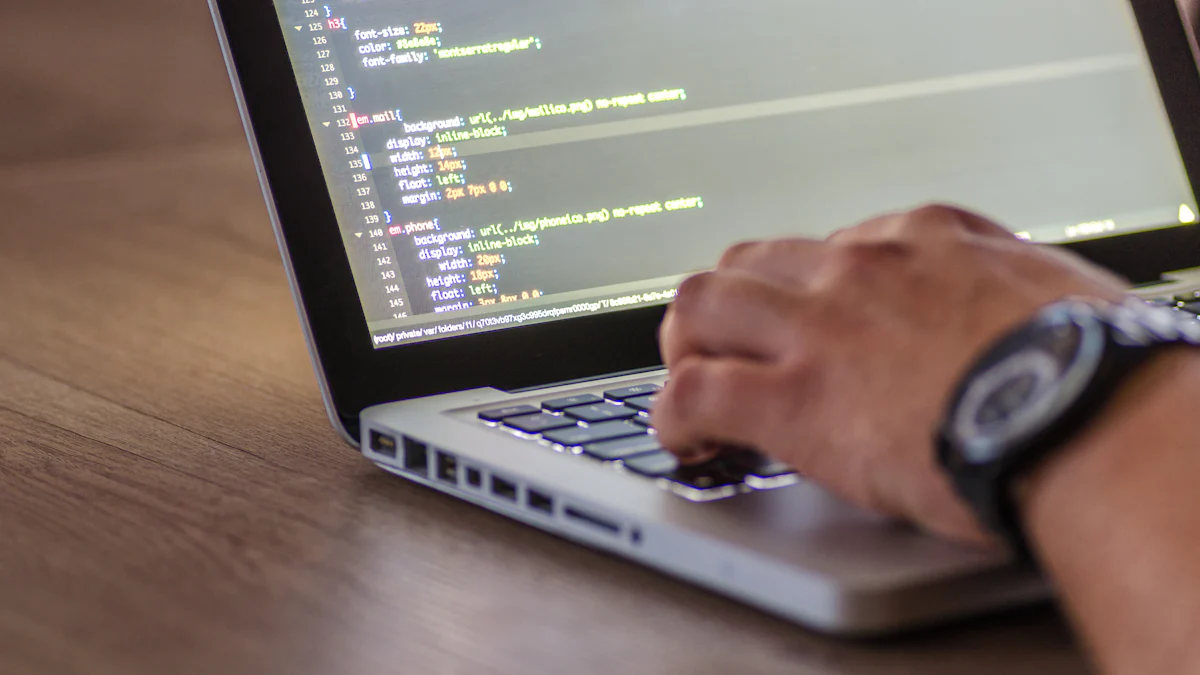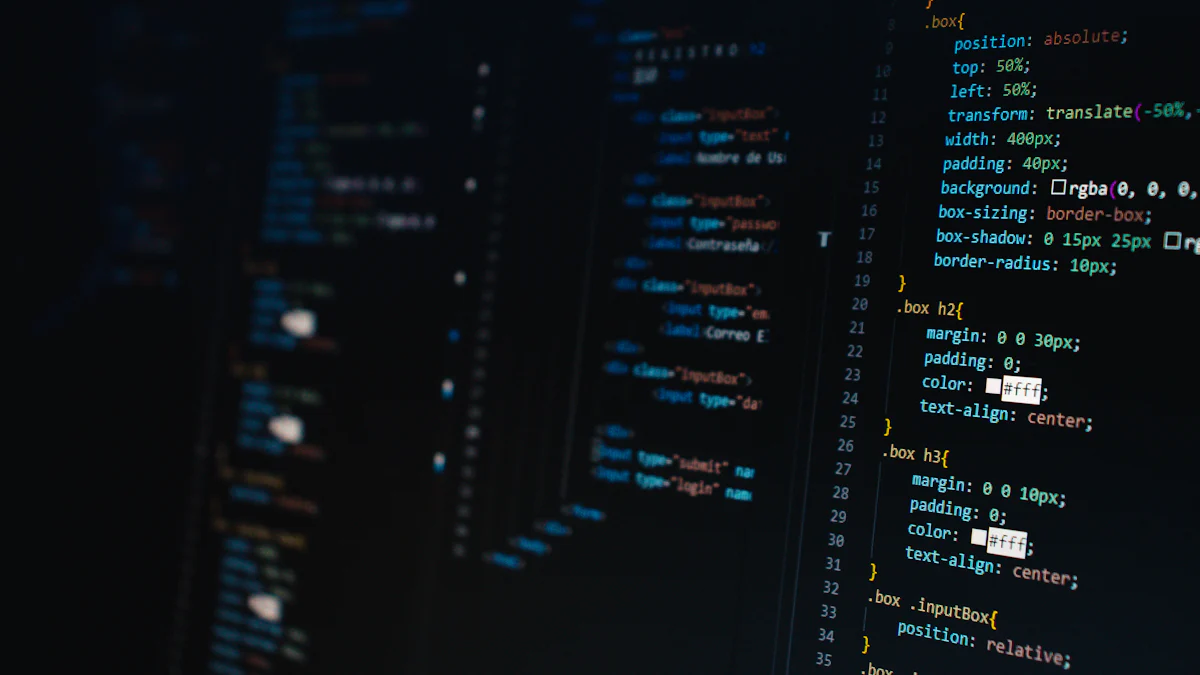Mastering 15-Minute Coding Interviews in 2025
Try Aihirely for
Smarter Interview Prep
Experience real-time AI support tailored to your Resume.
Boost your confidence and ace every question with
AI Mock Interview.

Image Source: pexels
Short coding interviews can feel like a whirlwind. You’re expected to solve complex problems in minutes while staying calm under pressure. Many candidates struggle with stress, imposter syndrome, or the disconnect between interview tasks and real-world work. Preparation is key. Practicing an example software developer coding question 15 minute interview can boost your confidence and skills.
Key Takeaways
-
Solve coding problems often to gain confidence and get better. Work on 2-3 good problems each day instead of many.
-
Share your thinking clearly in the interview. Explain your steps one by one so the interviewer understands you.
-
Make sure you understand the problem before coding. Ask questions and check details to avoid mistakes.
What to Expect in a 15-Minute Coding Interview

Image Source: pexels
A 15-minute coding interview moves fast. You’ll need to think on your feet, solve problems efficiently, and communicate clearly. Let’s break down what you can expect during this high-pressure scenario.
Example Software Developer Coding Question 15 Minute Interview
Imagine this: You’re asked to find the indices of two numbers in an array that add up to a target value. Sounds simple, right? But with only 15 minutes, every second counts. You’ll need to quickly understand the problem, plan your approach, and write clean code. A hash map is often the go-to solution here because it allows you to solve the problem efficiently. Once you’ve implemented your code, you’ll test it with edge cases and explain its time complexity. Practicing an example software developer coding question 15 minute interview like this can help you prepare for similar challenges.
Common Problem Types and Patterns
Certain problem types show up repeatedly in these interviews. Here are a few you should know:
-
Array Manipulation: Tasks like finding pairs, subarrays, or specific patterns.
-
String Operations: Reversing strings, checking for palindromes, or finding substrings.
-
Hash Maps: Problems like finding indices of two numbers that sum to a target.
-
Basic Algorithms: Sorting, searching, or traversing data structures like trees or graphs.
Recognizing these patterns can save you time and help you focus on solving the problem.
Key Skills and Attributes Interviewers Seek
Interviewers aren’t just looking for the right answer. They want to see how you think. Here’s what they value:
-
Problem-Solving Skills: Can you break down the problem and find an efficient solution?
-
Clarity: Do you explain your thought process clearly?
-
Code Quality: Is your code clean, readable, and free of unnecessary complexity?
-
Adaptability: How do you handle edge cases or unexpected challenges?
By practicing an example software developer coding question 15 minute interview, you can develop these skills and show interviewers you’re ready for the job.
How to Prepare for Success
Practice Bite-Sized Coding Challenges
Tackling small, focused problems is one of the best ways to sharpen your skills. Start by focusing on one data structure or algorithm type at a time. For example, you could spend a week mastering arrays before moving on to hash maps. Begin with easier problems and gradually increase the difficulty. Time yourself while solving each challenge to improve your speed. Afterward, review your solution and look for ways to optimize it. Don’t forget to revisit older problems to reinforce what you’ve learned. Tools like Trello or Asana can help you organize your practice schedule, while the Pomodoro Technique keeps you focused during sessions.
Master Problem-Solving Frameworks
A solid problem-solving framework can make all the difference in a 15-minute coding interview. Start by understanding the basics of data structures like arrays, stacks, and trees. Then, dive into algorithms such as recursion, sorting, and dynamic programming. These concepts form the foundation of most coding challenges. For higher-level roles, learning system design principles can also be helpful. By mastering these frameworks, you’ll approach problems with confidence and structure.
Use Resources Like Leetcode and HackerRank
Platforms like LeetCode and HackerRank are goldmines for interview preparation. LeetCode offers company-specific questions, making it perfect for targeted practice. HackerRank, on the other hand, provides structured learning paths that build foundational skills. You can start with HackerRank to strengthen your basics and then transition to LeetCode for more advanced, job-specific problems. Using both platforms together ensures you’re well-prepared for any challenge, including an example software developer coding question 15 minute interview.
Simulate Real Interview Conditions with Timed Practice
Practicing under real interview conditions is crucial. Use platforms like LeetCode to solve problems with strict time limits. Set a timer for 15 minutes and work through challenges as if you’re in an actual interview. Afterward, review your performance and identify areas for improvement. Pair this with mock interviews to get feedback from mentors or peers. This combination of timed practice and constructive feedback will help you handle the pressure of real interviews.
Review Core Algorithms and Data Structures
Before your interview, brush up on essential algorithms and data structures. Focus on basics like arrays, linked lists, and hash maps, as well as advanced topics like heaps and tries. Practice searching algorithms like BFS and DFS, and review sorting techniques like quick sort and merge sort. Don’t overlook dynamic programming and recursion, as they often appear in interviews. Platforms like LeetCode can help you practice these concepts in your preferred programming language, boosting your confidence and readiness.
Tips for Excelling During the Interview

Image Source: pexels
Clarify the Problem Before Starting
Before you dive into coding, take a moment to fully understand the problem. This step saves time and prevents mistakes. Start by listening carefully to the problem statement. Then, repeat it back to the interviewer to confirm your understanding. Ask clarifying questions about inputs, outputs, constraints, or edge cases. For example, you might ask, “Can the array contain negative numbers?” or “Should I handle duplicate values?” Propose any assumptions you’re making and outline your approach briefly. This process demonstrates critical thinking, improves accuracy, and builds rapport with the interviewer. Plus, it shows you’re a strong communicator—an essential skill for developers.
Communicate Your Thought Process Clearly
Talking through your thought process helps the interviewer follow your logic. Use a simple structure: explain what you’re going to do, do it, and then summarize what you did. For instance, if solving an example software developer coding question 15 minute interview, describe the algorithm you’ll use and why it’s efficient. Avoid jumping around—work step-by-step. If possible, use visuals like a whiteboard or shared document to illustrate your approach. Clear communication not only showcases your problem-solving skills but also creates a collaborative atmosphere.
Write Clean and Efficient Code
Your code should be easy to read and efficient. Stick to these best practices:
-
Keep your code short and simple.
-
Use clear, descriptive names for variables and functions.
-
Follow the conventions of your programming language.
-
Add comments to explain tricky parts of your code.
-
Use whitespace to improve readability.
-
Avoid unnecessary or redundant code.
Clean code reflects your attention to detail and makes debugging easier. It also leaves a positive impression on the interviewer.
Debug and Handle Edge Cases Effectively
Edge cases can trip you up if you’re not prepared. Start by validating inputs to catch errors early. Assume things can go wrong and write defensive code to handle unexpected scenarios. For example, check for empty arrays or null values. Use clear error messages to make debugging easier. Test your solution thoroughly with edge cases like maximum or minimum input sizes. This approach shows you’re thorough and adaptable, even under pressure.
Manage Time Strategically
Time management is critical in a 15-minute interview. Spend the first few minutes clarifying the problem and planning your approach. Allocate the bulk of your time to writing and testing your solution. Save the last few minutes for optimization and final testing. Prioritize the core functionality first—don’t get stuck on minor details. Practicing timed challenges beforehand helps you develop a natural rhythm. Remember, staying calm and focused is just as important as solving the problem.
Common Mistakes to Avoid
Misunderstanding the Problem
One of the biggest pitfalls in coding interviews is jumping into coding too quickly. You might feel the pressure to start writing code immediately, but this often leads to mistakes. Many candidates skip clarifying the problem, which can result in misunderstanding the requirements. For example:
-
You might ignore constraints mentioned in the problem statement.
-
You could focus on the wrong part of the problem, like solving the second requirement while neglecting the first.
Take a moment to fully understand the problem. Restate it in your own words and ask clarifying questions. This ensures you’re on the right track before you begin coding.
Overcomplicating Solutions
Sometimes, simpler is better. Overthinking can lead to overly complex solutions that are hard to debug or explain. Stick to the basics. If a problem can be solved with a hash map or a simple loop, don’t try to reinvent the wheel. Interviewers value clean, efficient solutions over convoluted ones. Keep your approach straightforward and focus on solving the problem effectively.
Neglecting Edge Cases or Test Cases
Forgetting edge cases is a common mistake that can cost you points. To avoid this:
-
Document your assumptions about inputs and constraints.
-
Ask the interviewer if you’re unsure about specific edge cases.
-
Prioritize critical edge cases, like empty arrays or maximum input sizes.
-
Write unit tests to validate your solution.
Testing edge cases shows you’re thorough and prepared. It also demonstrates your ability to think critically about potential pitfalls.
Poor Communication with the Interviewer
Communication is key in coding interviews. If you don’t explain your thought process, the interviewer won’t know how you’re approaching the problem. To improve communication:
-
Clearly articulate your reasoning step-by-step.
-
Use a structured approach to explain your solution.
-
Engage with the interviewer if you hit a roadblock.
-
Restate the problem to confirm your understanding.
Good communication makes the interview feel more collaborative and shows you’re a team player.
Letting Stress Impact Performance
Stress can derail even the most prepared candidates. To stay calm:
-
Practice coding problems daily to build confidence.
-
Simulate interviews with mock sessions.
-
Use deep breathing exercises, like the 4-7-8 method, to relax.
-
Break down problems into smaller steps to make them manageable.
-
Start with pseudocode if you’re stuck.
Remember, it’s okay to pause and collect your thoughts. Staying composed under pressure shows resilience and professionalism.
Preparation, communication, and problem-solving are your keys to success in 15-minute coding interviews. Focus on verbalizing your approach, engaging with the interviewer, and writing clean, efficient code. Stick to quality practice over quantity. Timed challenges and clear communication build confidence. With the right mindset and preparation, you’ll tackle these interviews like a pro! 🚀
FAQ
What should I do if I get stuck during the interview?
Take a deep breath and stay calm. Break the problem into smaller steps. Start with pseudocode or explain your thought process to the interviewer for guidance.
How many problems should I practice daily?
Focus on 2-3 quality problems each day. Prioritize understanding the solution and learning from mistakes instead of rushing through multiple challenges.
Can I use pseudocode in my solution?
Yes! Interviewers often appreciate pseudocode. It shows your thought process and helps you organize your solution before diving into actual coding.
